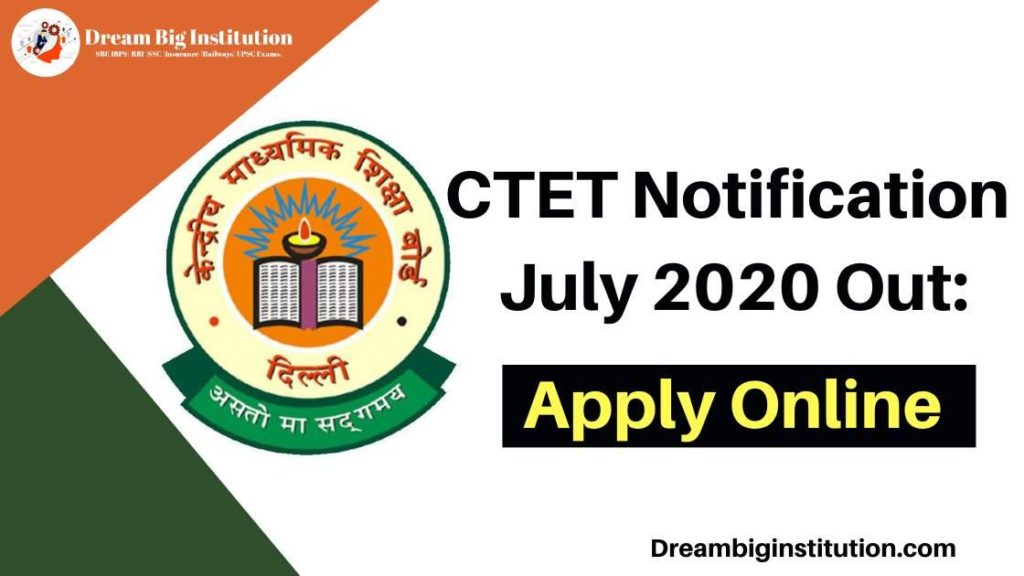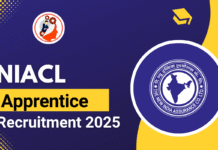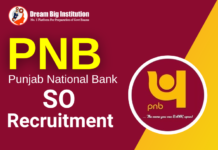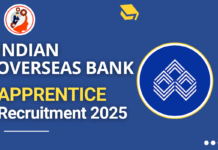Table of Contents
CTET Notification 2020 :
Dear Teachers,
The notification of the biggest exam for all teachers is out now. Central Board of Secondary Education (CBSE) has released the notification for the exam of CTET 2020 held in July. Central Teacher Eligibility Test ( CTET ) gives the candidate an opportunity to become eligible for applying in Central Government Schools such as DSSSB/MCD/ NVS/KVS/Tibetan Schools etc. as a teacher. A candidate who all is eligible can read the complete notification and apply online from the mentioned below link.
CTET 2020 Important Dates:
- Online Application Start: 24 January 2020
- Registration Last Date: 24 February 2020
- Fee Payment Last Date: 27 February 2020
- Exam Date: 05 July 2020
- Admit Card Available: June 2020
CTET 2020 Eligibility Criteria:
Primary Stage (Class I-V)
- Senior Secondary (or it’s equivalent) with at least 50% marks and passed or appearing in the final year of 2- year Diploma in Elementary Education (by whatever name known) OR
- Senior Secondary (or it’s equivalent) with at least 45% marks and passed or appearing in the final year of 2- year Diploma in Elementary Education (by whatever name known), in accordance with the NCTE (Recognition Norms and Procedure), Regulations, 2002. OR
- Senior Secondary (or its equivalent) with at least 50% marks and passed or appearing in the final year of 4- year Bachelor of Elementary Education (B.El.Ed). OR
- Senior Secondary (or it’s equivalent) with at least 50% marks and passed or appearing in the final year of 2- year Diploma in Education (Special Education). OR
- Graduation and passed or appearing in the final year of two-year Diploma in Elementary Education.
Secondary Stage (Class VI-VIII)
- Graduation and passed or appearing in the final year of 2-year Diploma in Elementary Education (by whatever name known). OR
- Graduation with at least 50% marks and passed or appearing in 1-year Bachelor in Education (B.Ed). OR
- Graduation with at least 45% marks and passed or appearing in 1-year Bachelor in Education (B.Ed), in accordance with the NCTE (Recognition Norms and Procedure) Regulations issued from time to time in this regard. OR
- Senior Secondary (or it’s equivalent) with at least 50% marks and passed or appearing in the final year of 4- year Bachelor in Elementary Education (B.El.Ed). OR
- Senior Secondary (or its equivalent) with at least 50% marks and passed or appearing in the final year of 4- year B.A/B.Sc.Ed or B.A.Ed/B.Sc.Ed. OR
- Graduation with at least 50% marks and passed or appearing in 1-year B.Ed. (Special Education).
CTET July 2020 Examination Schedule:
| CTET | Paper I | Paper-II |
| Date of Examination | 5 July 2020 | 5 July 2020 |
| Entry in the Examination Centre | 8:00 AM | 12:30 PM |
| Last Entry in the Examination Centre | 09:30 AM | 02:00 PM |
| Test Concludes | 12:00 Noon | 04:30 PM |
CTET 2020 Timetable:
| PAPER | TIMING | DURATION |
| PAPER-I | 9:30 A.M to 12:00 P.M | 2.30 Hours |
| PAPER-II | 2:00 P.M to 04:00 P.M | 2.30 Hours |
CTET 2020 Exam Pattern:
Paper I (for Classes I to V) Primary Stage:
| Subjects | No. of Questions | Marks |
| Child Development and Pedagogy | 30 | 30 |
| Language I (compulsory) | 30 | 30 |
| Language II (compulsory) | 30 | 30 |
| Mathematics | 30 | 30 |
| Environmental Studies | 30 | 30 |
| Total | 150 | 150 |
Paper-II (for Classes VI to VIII) Elementary Stage:
| Subjects | No. of Questions | Marks |
| Child Development and Pedagogy | 30 | 30 |
| Language I (compulsory) | 30 | 30 |
| Language II (compulsory) | 30 | 30 |
| Mathematics & Science Or Social Studies/Social Science | 60 | 60 |
| Total | 150 | 150 |
Note: Mathematics & Science- 30 MCQs each -60 Marks Or Social Studies/Social Science -60 MCQs -60 Marks (for Social Studies/Social Science teacher)
- There is no penalty for any wrong answer.
CTET July 2020 Syllabus:
Paper I (for classes I to V) Primary Stage:
- Child Development and Pedagogy 30 Questions
a) Child Development (Primary School Child) – 15 Questions
- Concept of development and its relationship with learning
- Principles of the development of children
- Influence of Heredity & Environment
- Socialization processes: Social world & children (Teacher, Parents, Peers)
- Piaget, Kohlberg, and Vygotsky: constructs and critical perspectives
- Concepts of child-centered and progressive education
- Critical perspective of the construct of Intelligence
- Multi-Dimensional Intelligence
- Language & Thought
- Gender as a social construct; gender roles, gender-bias and educational practice
- Individual differences among learners, understanding differences based on diversity of language, caste, gender, community, religion, etc.
- The distinction between Assessment for learning and assessment of learning;
- School-Based Assessment, Continuous & Comprehensive Evaluation: perspective and practice
- Formulating appropriate questions for assessing readiness levels of learners; for enhancing learning and critical thinking in the classroom and for assessing learner achievement.
b) Concept of Inclusive education and understanding children with special needs – 5 Questions
- Addressing learners from diverse backgrounds including disadvantaged and deprived
- Addressing the needs of children with learning difficulties, ‘impairment’ etc.
- Addressing the Talented, Creative, Specially abled Learners
c) Learning and Pedagogy – 10 Questions
- How children think and learn; how and why children ‘fail’ to achieve success in school performance.
- Basic processes of teaching and learning; children’s strategies of learning; learning as a social activity; social context of learning.
- Child as a problem solver and a ‘scientific investigator’ Alternative conceptions of learning in children, understanding children’s ‘errors’ as significant steps in the learning process.
- Cognition & Emotions
- Motivation and learning
- Factors contributing to learning – personal & environmental
Language I – 30 Questions
a) Language Comprehension – 15 Questions
- Reading unseen passages – two passages one prose or drama and one poem with questions on comprehension, inference, grammar and verbal ability (Prose passage may be literary, scientific, narrative or discursive)
b) Pedagogy of Language Development – 15 Questions
- Learning and acquisition
- Principles of Language Teaching
- Role of listening and speaking; function of language and how children use it as a tool
- A critical perspective on the role of grammar in learning a language for communicating ideas verbally and in written form
- Challenges of teaching language in a diverse classroom; language difficulties, errors and disorders
- Language Skills
- Evaluating language comprehension and proficiency: speaking, listening, reading and writing
- Teaching-learning materials: Textbook, multi-media materials, multilingual resource of the classroom
- Remedial Teaching
III. Language – II – 30 Questions
a) Comprehension – 15 Questions
- Two unseen prose passages (discursive or literary or narrative or scientific) with a question on comprehension, grammar, and verbal ability
b) Pedagogy of Language Development – 15 Questions
- Learning and acquisition
- Principles of Language Teaching
- Role of listening and speaking; function of language and how children use it as a tool
- A critical perspective on the role of grammar in learning a language for communicating ideas verbally and in written form;
- Challenges of teaching language in a diverse classroom; language difficulties, errors and disorders
- Language Skills
- Evaluating language comprehension and proficiency: speaking, listening, reading and writing
- Teaching-learning materials: Textbook, multi-media materials, multilingual resource of the classroom
- Remedial Teaching
IV Mathematics – 30 Questions
a) Content – 15 Questions
- Geometry
- Shapes & Spatial Understanding
- Solids around Us
- Numbers
- Addition and Subtraction
- Multiplication
- Division
- Measurement
- Weight
- Time
- Volume
- Data Handling
- Patterns
- Money
b) Pedagogical issues – 15 Questions
- Nature of Mathematics/Logical thinking; understanding children’s thinking and reasoning patterns and strategies of making meaning and learning
- Place of Mathematics in Curriculum
- Language of Mathematics
- Community Mathematics
- Evaluation through formal and informal methods
- Problems of Teaching
- Error analysis and related aspects of learning and teaching
- Diagnostic and Remedial Teaching
Environmental Studies – 30 Questions
a) Content – 15 Questions
Family and Friends:
- Relationships
- Work and Play
- Animals
- Plants
- Food
iii. Shelter
- Water
- Travel
- Things We Make and Do
b) Pedagogical Issues – 15 Questions
- Concept and scope of EVS
- Significance of EVS integrated EVS
- Environmental Studies & Environmental Education
- Learning Principles
- Scope & relation to Science & Social Science
- Approaches to presenting concepts
- Activities
- Experimentation/Practical Work
- Discussion
- CCE
- Teaching material/Aid
- Problems
Paper-II (for classes VI to VIII) Elementary Stage:
Child Development and Pedagogy-30 Questions
a) Child Development (Elementary School Child)-15 Questions
- Concept of development and its relationship with learning
- Principles of the development of children
- Influence of Heredity & Environment
- Socialization processes: Social world & children (Teacher, Parents, Peers)
- Piaget, Kohlberg, and Vygotsky: constructs and critical perspectives
- Concepts of child-centered and progressive education
- Critical perspective of the construct of Intelligence
- Multi-Dimensional Intelligence
- Language & Thought
- Gender as a social construct; gender roles, gender-bias and educational practice
- Individual differences among learners, understanding differences based on diversity of language, caste, gender, community, religion, etc.
- The distinction between Assessment for learning and assessment of learning; School-Based Assessment, Continuous & Comprehensive Evaluation: perspective and practice
- Formulating appropriate questions for assessing readiness levels of learners; for enhancing learning and critical thinking in the classroom and for assessing learner achievement.
b) Concept of Inclusive education and understanding children with special needs-5 Questions
- Addressing learners from diverse backgrounds including disadvantaged and deprived
- Addressing the needs of children with learning difficulties, ‘impairment’ etc.
- Addressing the Talented, Creative, Specially able Learners
c) Learning and Pedagogy-10 Questions
- How children think and learn; how and why children ‘fail’ to achieve success in school performance.
- Basic processes of teaching and learning; children’s strategies of learning; learning as a social activity; social context of learning.
- Child as a problem solver and a ‘scientific investigator’
- Alternative conceptions of learning in children, understanding children’s ‘errors’ as significant steps in the learning process.
- Cognition & Emotions
- Motivation and learning
- Factors contributing to learning – personal & environmental
Language – I-30 Questions
a) Language Comprehension-15 Questions
- Reading unseen passages – two passages one prose or drama and one poem with questions on comprehension, inference, grammar and verbal ability (Prose passage may be literary, scientific, narrative or discursive)
b) Pedagogy of Language Development-15 Questions
- Learning and acquisition
- Principles of Language Teaching
- Role of listening and speaking; function of language and how children use it as a tool
- A critical perspective on the role of grammar in learning a language for communicating ideas verbally and in written form;
- Challenges of teaching language in a diverse classroom; language difficulties, errors and disorders
- Language Skills
- Evaluating language comprehension and proficiency: speaking, listening, reading and writing
- Teaching-learning materials: Textbook, multi-media materials, multilingual resource of the classroom
- Remedial Teaching
III. Language – II-30 Questions
a) Comprehension-15 Questions
- Two unseen prose passages (discursive or literary or narrative or scientific) with a question on comprehension, grammar, and verbal ability
b) Pedagogy of Language Development -15 Questions
- Learning and acquisition
- Principles of Language Teaching
- Role of listening and speaking; function of language and how children use it as a tool
- A critical perspective on the role of grammar in learning a language for communicating ideas verbally and in written form;
- Challenges of teaching language in a diverse classroom; language difficulties, errors and disorders
- Language Skills
- Evaluating language comprehension and proficiency: speaking, listening, reading and writing
- Teaching-learning materials: Textbook, multi-media materials, multilingual resource of the classroom
- Remedial Teaching
(A) Mathematics and Science-60 Questions
(i) Mathematics-30 Questions
a) Content-20 Questions
- Number System
- Knowing our Numbers
- Playing with Numbers
- Whole Numbers
- Negative Numbers and Integers
- Fractions
- Algebra
- Introduction to Algebra
- Ratio and Proportion
- Geometry
- Basic geometrical ideas (2-D)
- Understanding Elementary Shapes (2-D and 3-D)
- Symmetry: (reflection)
- Construction (using Straight edge Scale, protractor, compasses)
- Mensuration
- Data handling
b) Pedagogical issues-10 Questions
- Nature of Mathematics/Logical thinking
- Place of Mathematics in Curriculum
- Language of Mathematics
- Community Mathematics
- Evaluation
- Remedial Teaching
- Problem of Teaching
(ii) Science-30 Questions
a) Content-20 Questions
Food
- Sources of food
- Components of food
- Cleaning food
- Materials
- Materials of daily use
III. The World of the Living
- Moving Things People and Ideas
- How things work
- Electric current and circuits
- Magnets
- Natural Phenomena
VII. Natural Resources
b) Pedagogical issues-10 Questions
- Nature & Structure of Sciences
- Natural Science/Aims & objectives
- Understanding & Appreciating Science
- Approaches/Integrated Approach
- Observation/Experiment/Discovery (Method of Science)
- Innovation
- Text Material/Aids
- Evaluation – cognitive/psychomotor/affective
- Problems
- Remedial Teaching
Social Studies/Social Sciences-60 Questions
a) Content-40 Questions
History
- When, Where and How
- The Earliest Societies
- The First Farmers and Herders
- The First Cities
- Early States
- New Ideas
- The First Empire
- Contacts with Distant Lands
- Political Developments
- Culture and Science
- New Kings and Kingdoms
- Sultans of Delhi
- Architecture
- Creation of an Empire
- Social Change
- Regional Cultures
- The Establishment of Company Power
- Rural Life and Society
- Colonialism and Tribal Societies
- The Revolt of 1857-58
- Women and Reform
- Challenging the Caste System
- The Nationalist Movement
- India After Independence
Geography
- Geography as a social study and as a science
- Planet: Earth in the solar system
- Globe
- Environment in its totality: natural and human environment
- Air
- Water
- Human Environment: settlement, transport, and communication
- Resources: Types-Natural and Human
- Agriculture
III. Social and Political Life
- Diversity
- Government
- Local Government
- Making a Living
- Democracy
- State Government
- Understanding Media
- Unpacking Gender
- The Constitution
- Parliamentary Government
- The Judiciary
- Social Justice and the Marginalized
b) Pedagogical issues-20 Questions
- Concept & Nature of Social Science/Social Studies
- Class Room Processes, activities, and discourse
- Developing Critical thinking
- Inquiry/Empirical Evidence
- Problems of teaching Social Science/Social Studies
- Sources – Primary & Secondary
- Projects Work
- Evaluation
CTET JULY 2020 Cut- Off / Qualifying Marks and Award of CTET Certificate:
| Category | Minimum Qualifying Percentage | Maximum Marks | Minimum Marks |
| General | 60% | 150 | 90 |
| OBC/SC/ST | 55% | 150 | 82 |
CTET July 2020 Important Links: |
|
| Apply Online | Click Here |
| Download Notification | Click Here |
| Official Website | Click Here |
You May Also Check:
- Monthly Current Affairs MCQ 2019 For All Competitive Exams
- Daily Current Affairs Quiz
- Monthly Important Days and Date (Jan to December) for All Competitive Exam
- Banking Awareness
- Computer Awareness
- Insurance Awareness
- Daily The Hindu Editorial Vocabulary
- Latest Job Notification
- Exam Syllabus and Exam Pattern
- Exam Analysis
- Premium Practice Sets
- Previous Years Papers
- Important Study Materials
You May Also Like Some of Our Best E-Books & Practice Sets
- Quadratic Equation PDF With Solution for All Bank Exam
- English Practice Book PDF Notes For SBI Clerk Prelims
- Economic Questions For RRB NTPC, SSC, UPSC Exam
- 40+ RRB NTPC Officials Exam Paper PDF Hindi and English
- Ratio and Proportion Practice Questions For All Exams
- Reasoning New Pattern Coding-Decoding
- RRB NTPC Arithmetic Practice Set in Hindi And English
- RRB NTPC Physics Questions General Science
- 300+ Haryana GK One Liner Capsules For HSSC HTET HPSC and Other Exams
- 100+Puzzles for RRB PO and Clerk Exam PDF Download Now
- Quadratic Equation PDF With Solution for All Bank Exam
| To Join us |
Click Here |
| To Join us |
Click Here |
| To Join us |
Click Here |
India’s Most Affordable Premium Practice Set













